Are you looking to learn how to consume less energy and change your daily routines to accomplish that goal? There are many ways to conserve energy, and we want to share our top tips with you. Conserving energy has a wide range of benefits, from saving you money to preserving our resources and saving the environment from damage. Let’s see what you’re already doing and what you can add to your conservation practices.
1. What Are the Best Ways to Conserve Energy?
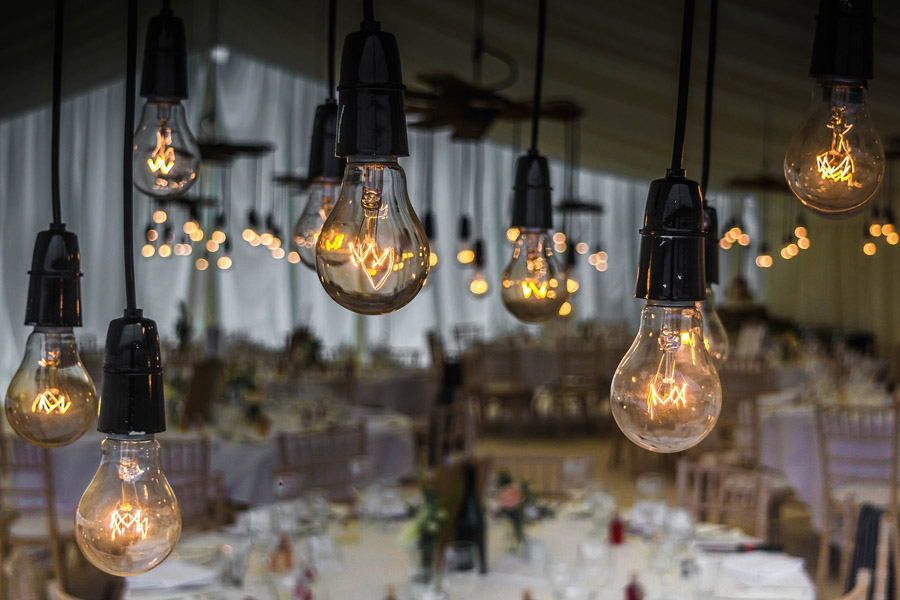
Image Via: Pixabay
Energy conservation is always a crucial, meaningful topic. We’re living in times when we consume great amounts of energy, and yet we also have the technology to use energy in far most efficient ways than we commonly do. We’ve come far beyond just remembering to turn off the lights when we leave a room. Are you keeping up with leading-edge practices that allow you to conserve energy?
Your energy efficiency plan can take many forms because there are opportunities all around your home to reduce your energy usage. You can also choose from an incredible variety of popular energy efficiency products to help you build a smarter, greener home. You’ll notice that as you shop for your home you’ll learn much more about the term “energy efficiency.” Many products carry claims that they require less energy to perform the same function as another similar product, but it’s important to evaluate each one using objective standards.
The term energy conservation refers to modifying your behavior to result in using less energy. This starts with engaging in some basic behaviors like using programmable devices (which prevent consumption when not in use) and reusing or recycling cans, plastic items, and more. Adopting behaviors that conserve energy, monitoring your lifestyle, and making some minor changes can provide major benefits.
2. What Are Some Benefits of Conserving Energy?
A primary reason you’ll want to conserve energy is to gain more control over your energy bill. The more suggestions you follow for energy efficiency and conservation, the bigger the deduction will be from your monthly energy bill. Since your energy use adds up, you can easily slow down that process by practicing the tips that assure the use of less energy.
Another key reason you’ll want to conserve energy is to reduce the demand on the earth’s natural resources. When you take measures to improve energy efficiency, it will reduce your carbon footprint. Homes are responsible for nearly a fifth of national greenhouse gas emissions, which can be reduced. Do you feel confident that your household can reduce its energy by investing in more efficient energy consumption?
3. Are You Using Energy-Efficient Products?
Energy-efficient products are designed to reduce overall energy use, which should also reduce the amount of money you will spend in the long run. By spending slightly more money up front to buy an energy-efficient product, you’ll often see the returns add up over time by shaving a percentage off your energy bill every month. You’ll conserve energy when you decide to make consistently informed decisions about products like light bulbs, advanced power strips, and smart switches. You will make sound choices when deciding on things like HVAC system or home insulation if you take conservation into account.,
Most such products reduce the amount of energy consumed through the burning of fossil fuels like natural gas and coal, either directly or by saving significant electricity. When there’s less energy generated from burning fossil fuels, then there are lower greenhouse gas emissions. Greenhouse gasses are detrimental to our environment and contribute to adverse conditions related to global climate change. Although experts may disagree on the pace of these effects, there is no debate over the wisdom of a person’s decision to conserve energy.
What We Reviewed
Replace Your Light Bulbs
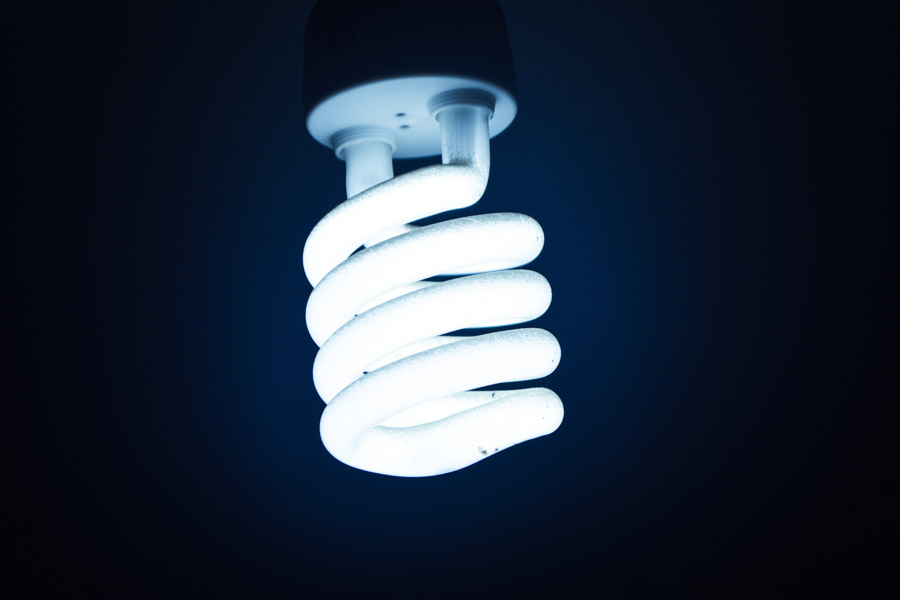
Image Via: Pexels
Do you know what kind of light bulbs you’re using? Most people still use traditional incandescent light bulbs. While they have been around for many years, and they are inexpensive, traditional incandescent light bulbs aren’t nearly as efficient as modern options now available. Newer-tech light bulbs use energy far more efficiently, they have longer service lives, and they will cost much less in the long run because you won’t need to replace them as frequently. These factors make them the smarter option environmentally and financially.
Today, the most energy-efficient light bulbs use light-emitting diodes (LEDs). These light bulbs are significantly better than incandescent bulbs when it comes to lifetime and energy usage. Incandescent light bulbs will consume an excessive amount of electricity by today’s standards and must be replaced incrementally more often. Try using energy-efficient alternatives like LEDs, halogen incandescent bulbs, or compact fluorescent lights (CFLs), options that use anywhere from 25% to 80% less electricity and last 5 to 20 times longer than old-school incandescents.
Adjust Daily Behaviors
Buying energy-efficient products it a great place to start, but a real conservation plan also comes from learning how to adjust your day-to-day behaviors. One tip is to always keep in mind the popular Environmental Protection Agency (EPA) slogan built on the “three R’s”: reduce, reuse, recycle. This will help you and your community by saving money, energy, and natural resources within your environment. You can substantially reduce the amount of waste you produce when you buy minimally packaged goods and choose reusable products over disposable ones, for example.
Did you know that, for every pound of waste you eliminate or recycle, you save energy and reduce emissions of CO2 by at least 1 pound? When each person contributes in this way, it makes a big difference. You can also cut your garbage production in half each week, which adds up quickly and has great benefit. You can explore a growing market for products made with recycled materials, which replaces having to use more raw materials like paper, glass, and aluminum for new-goods manufacturing.
Use Smart Power Strips
Do you know what one of the biggest energy thieves in your home is? If you guessed “power strips,” then you’re correct. Energy lost through power strips is part of what make up “vampire loads.” On average, these loads represent 10% of the energy used in the home, and none of that energy is used to produce anything. There is no benefit, and yet you are still paying for it if you use standard strips.
You can find a lot more information about the statistics relevant to advanced power strips at the National Renewable Energy Laboratory (NREL) website. Clearly, it is best to eliminate these vampire loads along with all the associated energy loss through appliances and devices that are not in use. Whether it’s your TV even when turned off, phone chargers, gaming systems, or any other item that concerns you, plugging it into an advanced power strip is the best solution.
Weatherize Your Home
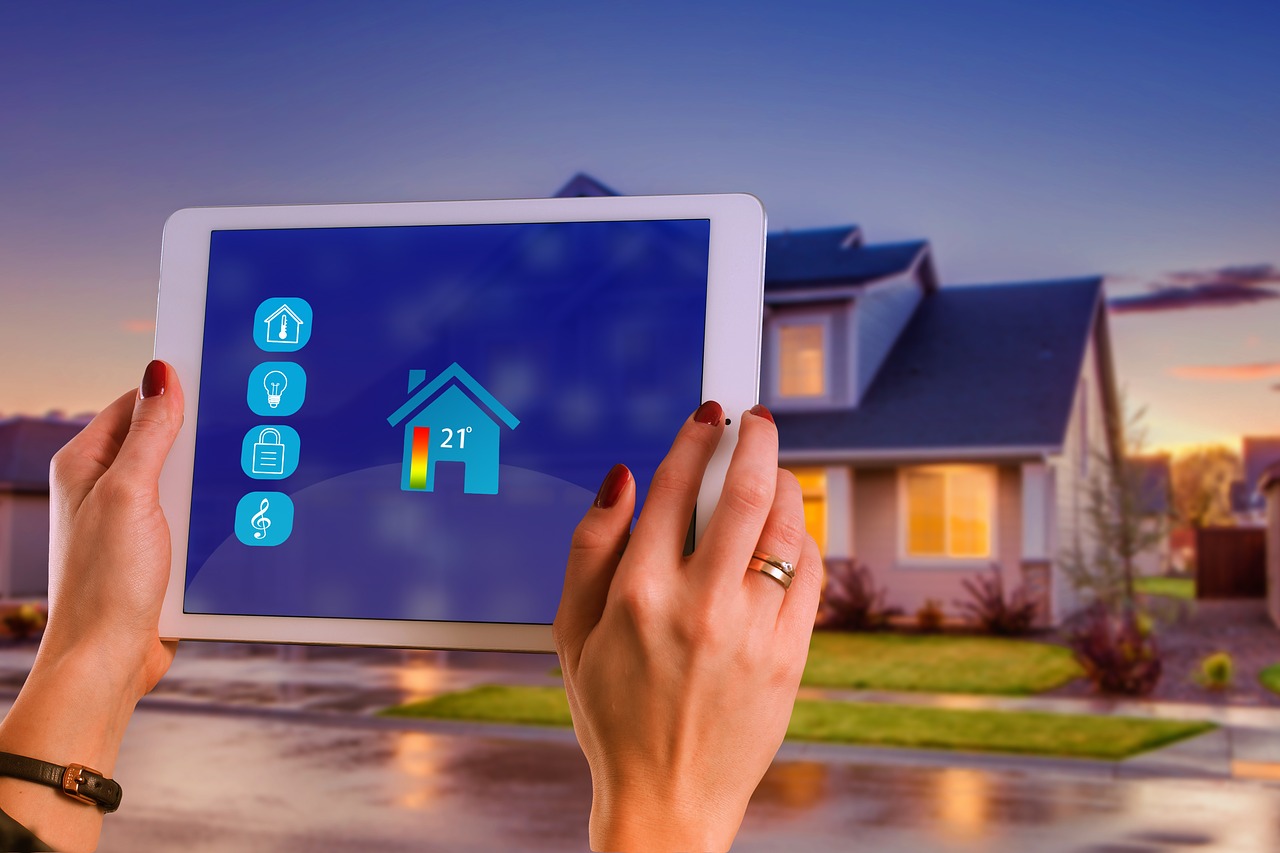
Image Via: Pixabay
An easy way to reduce your heating and cooling expenses is to seal air leaks around your home. Air leak sources often include windows, doors, and vents. You want to be sure that you weatherize your home. To do this, you need to survey your home to ensure there are no cracks or openings between these areas. Where you find gaps, you have energy loss problems to correct.
To benefit most from weatherizing your home, consider the best ways to maximize insulation. Think of all the places that could benefit from extra insulation within your home… such as air ducts, light fixtures, and hatches for the attic or roof. Remember that hot air rises and will escape through any possible openings in your structure, and that heat loss means energy waste.
Install Energy-Efficient Windows
You’ll want to assess whether your current windows need more than just additional insulation. You may want to replace them by installing today’s far more energy-efficient windows. Since windows are a significant source of energy waste, often amounting from 10 to 20% of your total heating bill, so this step will be well worth the investment for many homeowners.
One way to reduce heat loss is by replacing single-pane windows with double-pane windows. Also, consider the climate you live in to determine the best course of action. If you live in a colder region, consider investing in higher-end storm windows to stand up to extreme weather conditions. Exterior and interior storm windows can reduce heat loss significantly.
Install a Programmable or Smart Thermostat
Do you have a programmable or smart thermostat in your home? By getting one, you can set it to turn off automatically whenever you like. Installing a programmable thermostat will reduce unnecessary heating or cooling when you’re asleep or not in your home. This is a helpful option to eliminate wasteful energy use via heating and cooling systems, especially if upgrading your HVAC system is not a viable option right now.
There are many different programmable thermostat models to choose from On average, when you add a programmable thermostat, you can save as much as $200 per year on utility bills. Smart thermostats can also provide extra features like indicators for when you need to replace air filters. You can be notified of other HVAC system problems as soon as they occur as well if you install one of these high-tech, energy-efficient devices.
Upgrade Your HVAC System
Since your HVAC system provides heating, ventilation, and air conditioning, it’s incredibly important to maximize its efficiency. Heating a home is a huge energy expenditure that can account for as much as 40% of home energy use. Improving your HVAC system’s ventilation will also improve your energy efficiency. Proper maintenance of your ventilation system can reduce your heating and cooling expenses by up to 20%.
Purchase Energy-Efficient Appliances
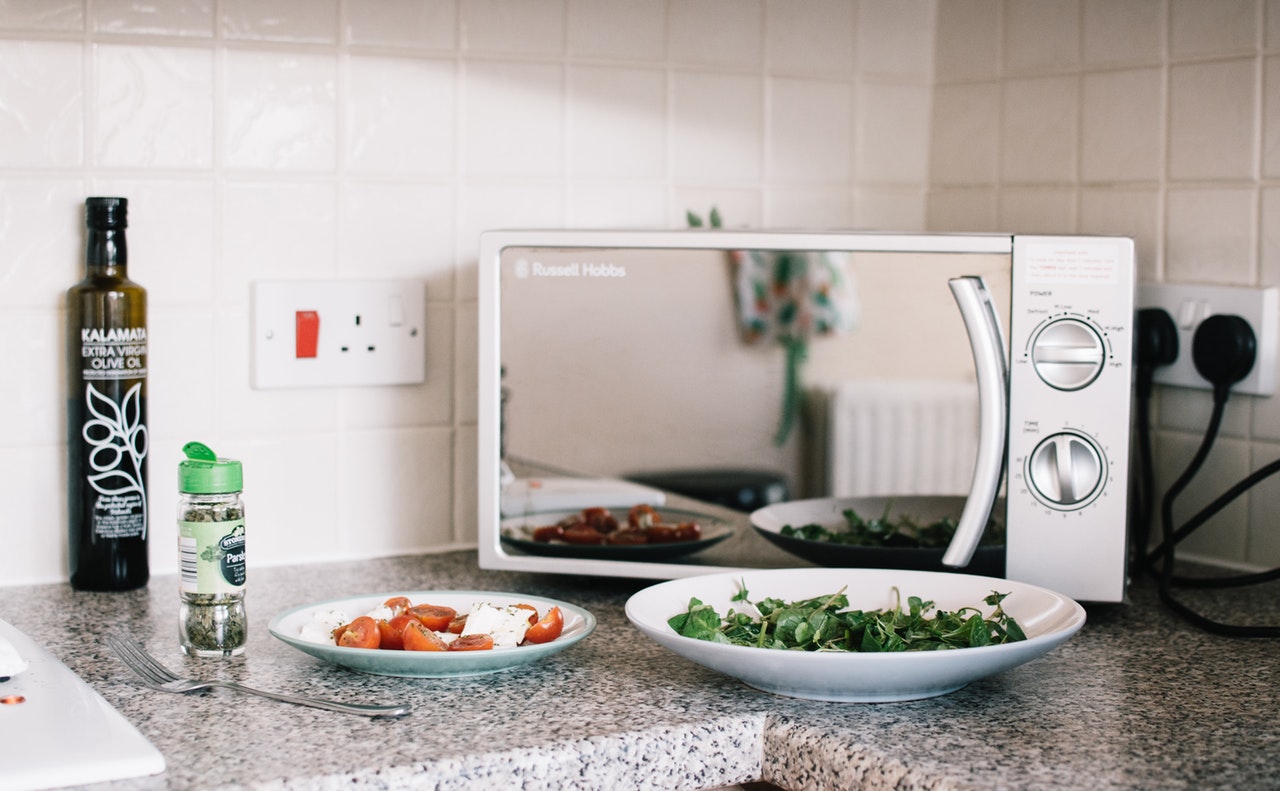
Image Via: Pexels
Energy-efficient appliances can save you from approximately 10% to more than 15% of your total household energy use. When you purchase any new appliances, pay attention to the features that conserve energy. When you compare the initial purchase price with the operating cost throughout the year, you’ll see how much you’ll save annually. Therefore, when you note that certain energy-efficient appliances have higher purchase prices than conventional models, you can evaluate whether that tradeoff makes good sense for the long run.
Insulate Your Home
You can save up to an additional 20% to 30% on your heating bills if you insulate (or significantly improve the existing insulation in) your home. Insulation plays a key role in lowering your utility bills by retaining heat during the winter and keeping heat out of your home during the summer. Your walls, floors, basement, attic, and crawlspace are the main areas where you want to add insulation.
Use Smart Switches
Most people are well aware that remembering to turn off the lights is a classic, very worthwhile tactic to conserve energy. Fortunately, we now have the innovative advantage of assuring this happens by using smart light switches. These switches use motion sensors, a programmable timer, or both to turn off lights around your home when the corresponding spaces aren’t in use. This is a very simple way for you to cut down on electricity usage.
Watch Your Product Purchases
Just as you’re getting keen on using energy efficient light bulbs, advanced power strips, and smart switches, you can watch how you make your product purchases. Did you know that choosing low-flow faucets and shower heads can help conserve energy? Even having a low-flow showerhead will save you money by reducing the amount of water needed during a shower. If you switch to this style, then you’ll limit the standard flow rate from your shower head to only 2.5 gallons of water per minute.
You can also reduce the amount of waste you produce by purchasing items with minimal packaging. You can make a difference simply by choosing a responsibly packaged product. You can also select reusable products when you have this option, rather than buying disposable products. Product options made from recycled materials are available in countless categories.
Reduce Your Water Heating Expenses
Water heating within your home is another contributor to your total energy consumption. First, you’ll want to decide if you’re already using an acceptably energy-efficient water heater. Next, you’ll want to follow the major methods of reducing your water heating expenses. You can turn down the thermostat on your water heater or consider insulating your water heater and the adjoining pipes. Both steps will help you use less hot water.
Efficient water heaters will consume far less energy than conventional, older-technology water heaters. Consider the value of owning a water heater likely to have a service life of 10-to-15 years, with your savings accumulating all that time.
Maintain Your Car’s Air Conditioning Unit
Just as you should properly maintain the air conditioning units in your home, you want to ensure that you regularly maintain your car’s air conditioning unit, too. Maintaining your vehicle’s air conditioning unit responsibly includes ensuring that coolant is recovered and recycled whenever you have it serviced. Replacing or cleaning dirty filters can also help you reduce carbon dioxide emissions.
A very notable factor suspected of causing irreversible damage the ozone layer is leakage from automobile air conditioning units. This is the most common source of emissions of chlorofluorocarbons (CFCs), which can exacerbate global warming. This is a simple, yet very effective step that is good for both your car and your energy conservation goals.
Turn Down Your Refrigerator
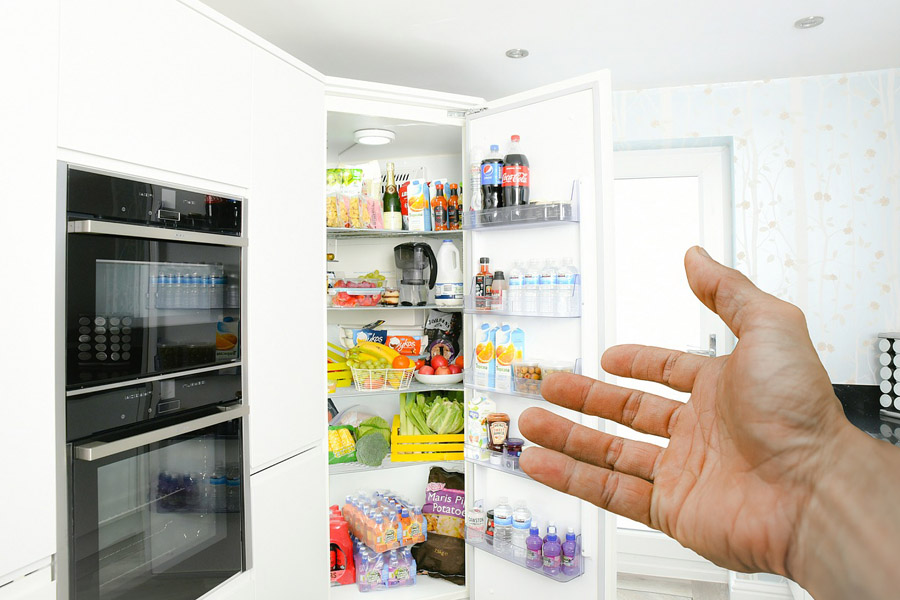
Image Via: Pixabay
As with room temperatures, you can better regulate your refrigerator for energy conservation. Have you tried turning your refrigerator down to a lower setting? It seems like it might not make a difference, but it does. Refrigerators can account for anywhere from 10% to 20% of your household electricity use.
You can use a thermometer to set your temperature at 37 degrees and your freezer at 3 degrees. We recommend that you also check the gaskets on your refrigerator and freezer doors to ensure tight seals. Many units today have a specific energy-saver switch that you can turn on.
Choose Your Next Vehicle with Care
Yes, being mindful of the energy you expend involves purchases both small and large. When preparing for your next major purchase like a car, you can remember to ask your car dealer about the models that deliver the very best gas mileage, as well as those that run on electricity. There are innovative, new features that allow your car to be smart and programmable as well as highly energy-efficient.
When you purchase your next vehicle, select one that provides excellent mileage in order to reduce your carbon dioxide emissions. Manufacturers are making eco-friendly, electric cars that provide impressive performance and craftsmanship. See for yourself and check out the latest options when you visit your car dealership!
The Verdict
Today, there’s an energy efficient alternative for almost every older appliance or light fixture. That means consumers have many actionable choices and the power to change their energy use on a revolutionary scale. This isn’t about you having to make sacrifices. Rather, it’s about creating the ultimate win/win. When you make the best choices to conserve energy for your home and your environment, you are doing something very meaningful and important.
Featured Image Source: Pixabay
Leave a Reply